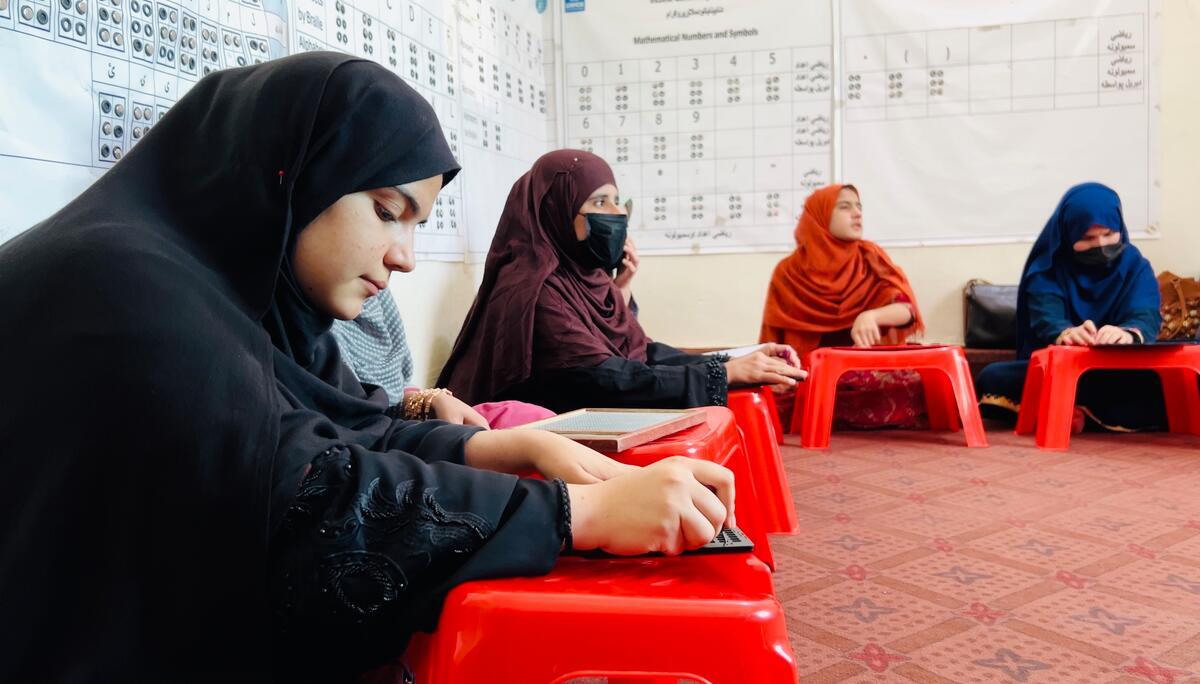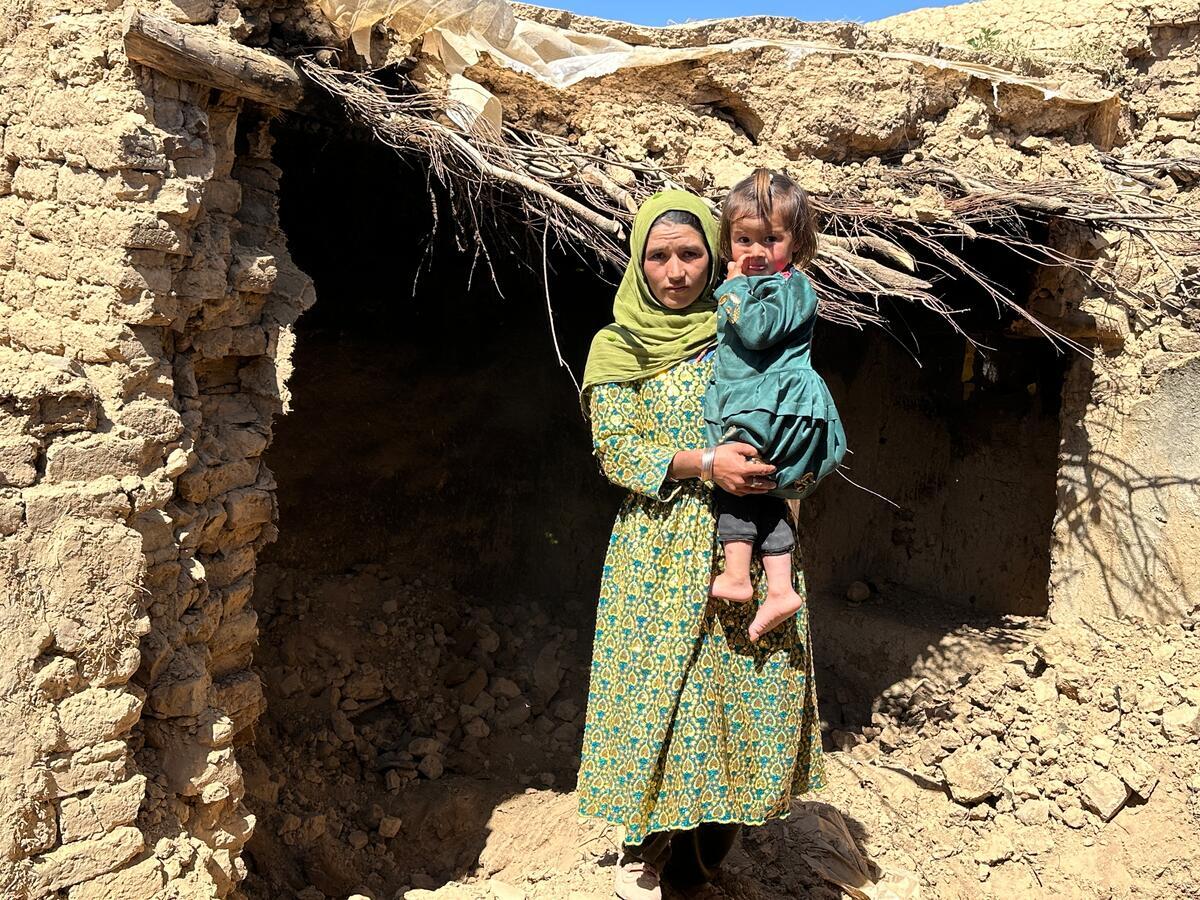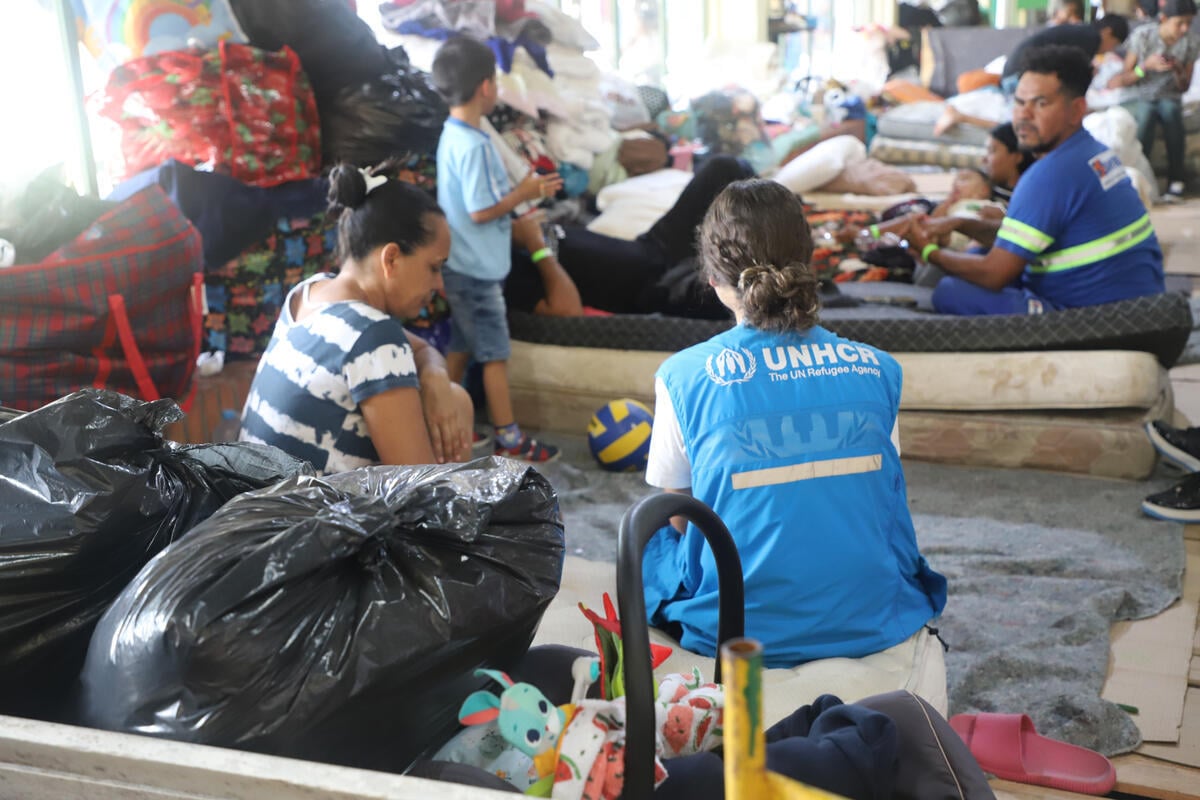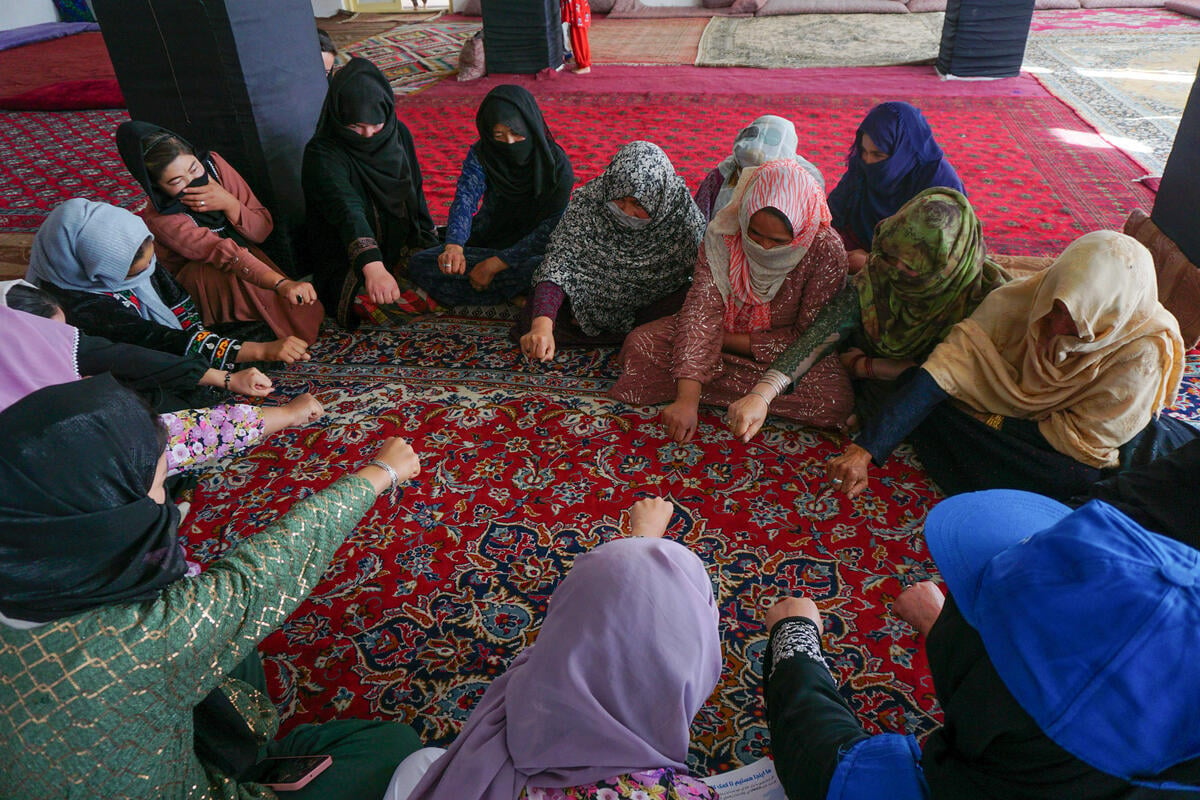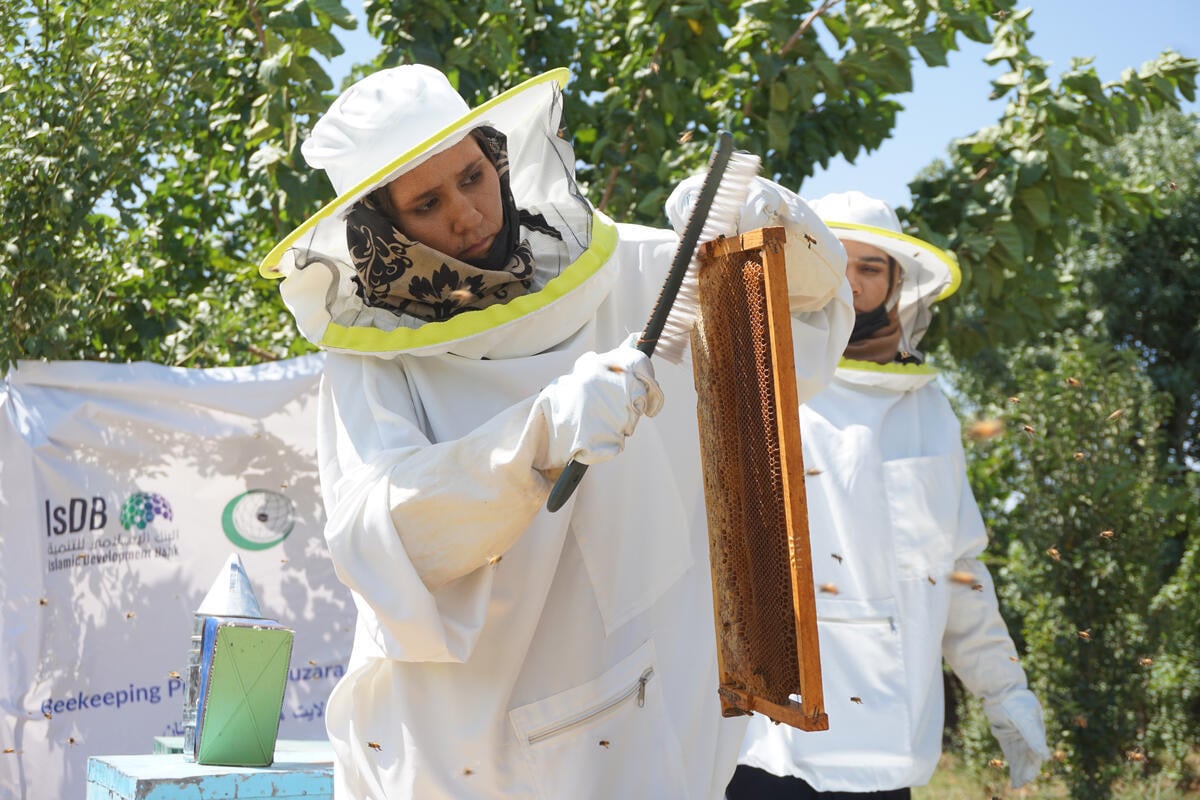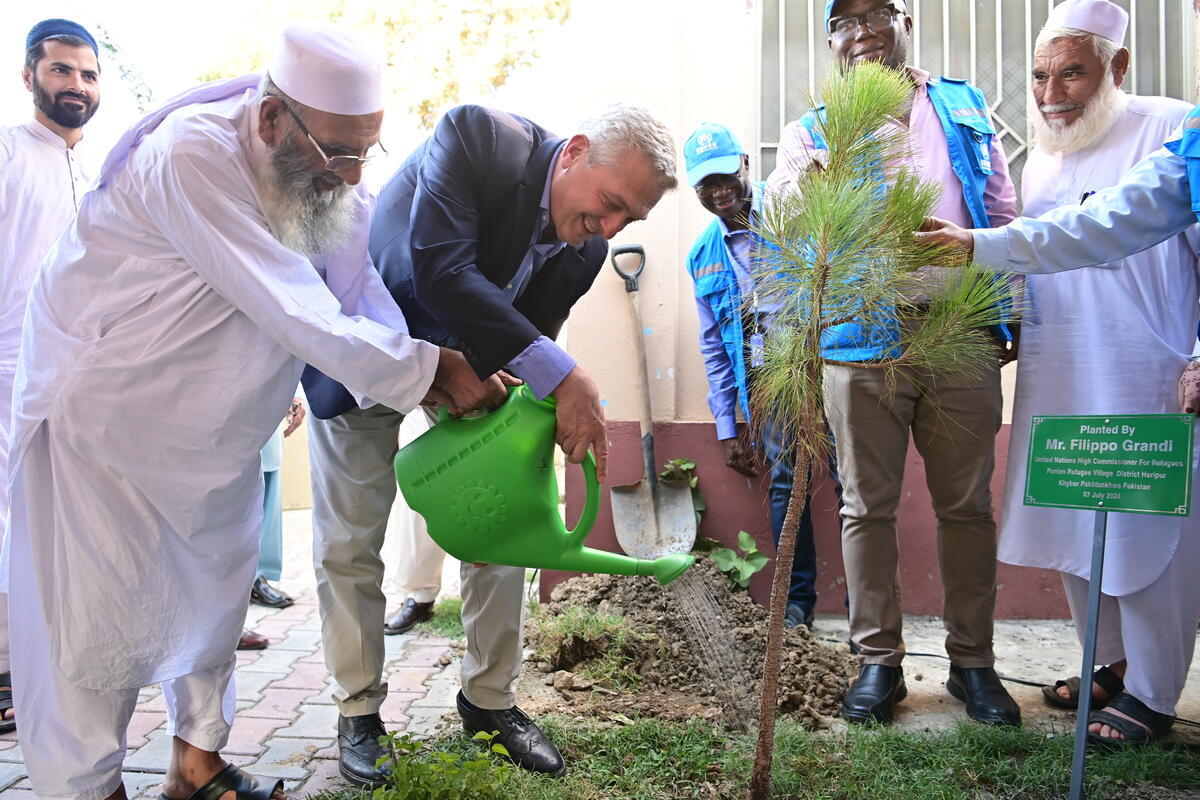Pakistan: Unregistered Afghans asking for repatriation help ahead of April deadline
Pakistan: Unregistered Afghans asking for repatriation help ahead of April deadline
In Pakistan, large numbers of unregistered Afghans have been approaching UNHCR's repatriation centres asking to be assisted home. A total of 58,956 were repatriated last month, and many more are coming to UNHCR's centres daily.
To cope with the huge crowds, we have opened an additional repatriation centre in North West Frontier province and extended opening hours. The two centres in NWFP can process up to 10,000 returning Afghans a day while the third centre in Balochistan can process some 1,500 people a day.
Last weekend, there were misleading reports of riots at UNHCR's voluntary repatriation centres in Pakistan's North West Frontier Province. In one case, a man was shot near the Hayatabad repatriation centre, but it was due to a personal feud and not related to the repatriation operation. The centre was closed for a few hours as a precautionary measure, but re-opened the following day. In another case, rumours of clashes at Jalozai repatriation centre were also unfounded.
However, conditions are indeed challenging as thousands of people throng the repatriation centres every day ahead of a government deadline for unregistered Afghans to repatriate by April 15. The authorities had earlier declared all Afghans who had not taken part in the registration exercise of October 2006 to February 2007 (and thus do not have Proof of Registration or PoR cards) to be illegal immigrants subject to national laws, but it had given this group a grace period from March 1 to April 15 should they opt to return home with UNHCR assistance. To receive an enhanced assistance averaging $100 per person upon their return to Afghanistan, they must be able to prove they were living in Pakistan around the time of the 2005 census of Afghans in Pakistan.
One of the problems is the high number of bogus returnees who are clogging up the process in an attempt to receive the enhanced return assistance. To prevent abuse of the system, UNHCR and the authorities conduct thorough interviews and physical verification. We've also introduced fingerprint biometrics to check if applicants hold PoR or Pakistani national identity cards. In addition, we continue to use iris verification tests to ensure that returnees are receiving assistance for the first time.
Voluntary repatriation for registered Afghans who have PoR cards will start after April 15. The PoR card is valid for three years and recognises the bearer as an Afghan citizen temporarily living in Pakistan. In principle, the card grants them temporary protection in Pakistan until the end of 2009. UNHCR and the governments of Pakistan and Afghanistan will use the data from registration to seek more durable solutions for this remaining population. While voluntary repatriation is the preferred solution, all parties acknowledge that there are some Afghans who will not be able to return home and will need alternative solutions.

